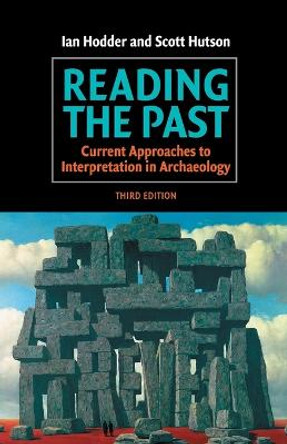In Germany, Nazi ideology casts a long shadow over the history of archaeological interpretation. Propaganda, school curricula, and academic publications under the regime drew spurious conclusions from archaeological evidence to glorify the Germanic past and proclaim chauvinistic notions of cultural and racial superiority. But was this powerful and violent version of the distant past a nationalist invention or a direct outcome of earlier archaeological practices? By exploring the myriad pathways along which people became familiar with archaeology and the ancient past--from exhibits at local and regional museums to the plotlines of popular historical novels--this broad cultural history shows that the use of archaeology for nationalistic pursuits was far from preordained. In Germany's Ancient Pasts, Brent Maner offers a vivid portrait of the development of antiquarianism and archaeology, the interaction between regional and national history, and scholarly debates about the use of ancient objects to answer questions of race, ethnicity, and national belonging. While excavations in central Europe throughout the eighteenth and nineteenth centuries fed curiosity about the local landscape and inspired musings about the connection between contemporary Germans and their "ancestors," antiquarians and archaeologists were quite cautious about using archaeological evidence to make ethnic claims. Even during the period of German unification, many archaeologists emphasized the local and regional character of their finds and treated prehistory as a general science of humankind. As Maner shows, these alternative perspectives endured alongside nationalist and racist abuses of prehistory, surviving to offer positive traditions for the field in the aftermath of World War II. A fascinating investigation of the quest to turn pre- and early history into history, Germany's Ancient Pasts sheds new light on the joint sway of science and politics over archaeological interpretation.
About the AuthorBrent Maner is associate professor of history at Kansas State University.
Reviews"This is a very fine book, based on rich and deep research. Germany's Ancient Pasts provides a useful synthesis and overview of the development of what Maner calls 'domestic' archaeology, a field that embraces prehistory (Vorgeschichte), proto-history (Fr hgeschichte), and also geology, ethnography, folklore studies, and physical anthropology. Detailing the wide variety of purposes domestic archaeology served in the period of its flourishing (roughly 1820-1914), Maner's book tells an important and nuanced story about why it is that Germans, like other Europeans, became so involved in the excavation, collection, and exhibition of artifacts in the years after Napoleon's demise."--Suzanne L. Marchand, Louisiana State University "author of "German Orientalism in the Age of Empire" and "Down from Olympus" "
Book InformationISBN 9780226593074
Author Brent ManerFormat Paperback
Page Count 336
Imprint University of Chicago PressPublisher The University of Chicago Press







